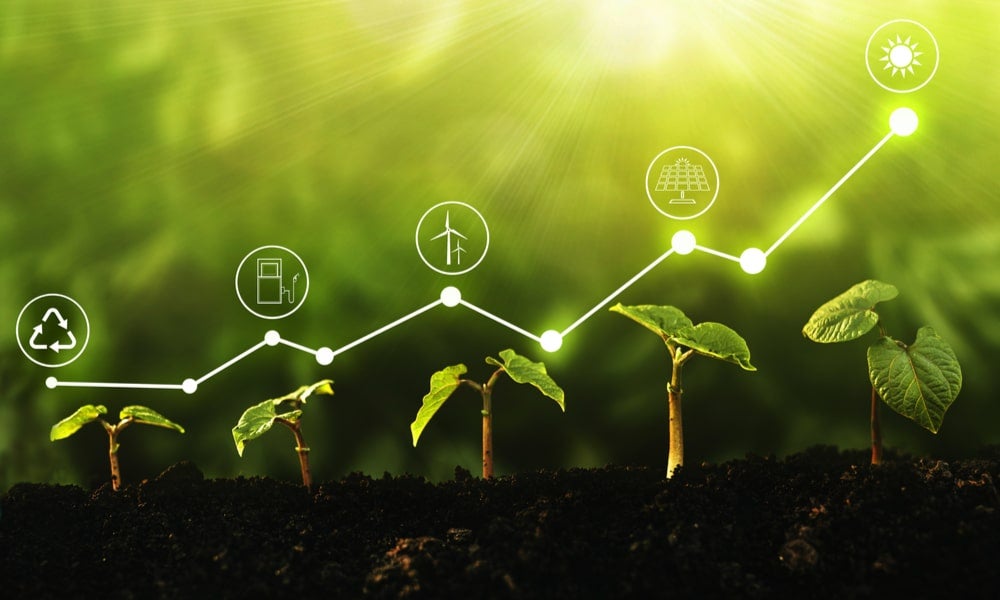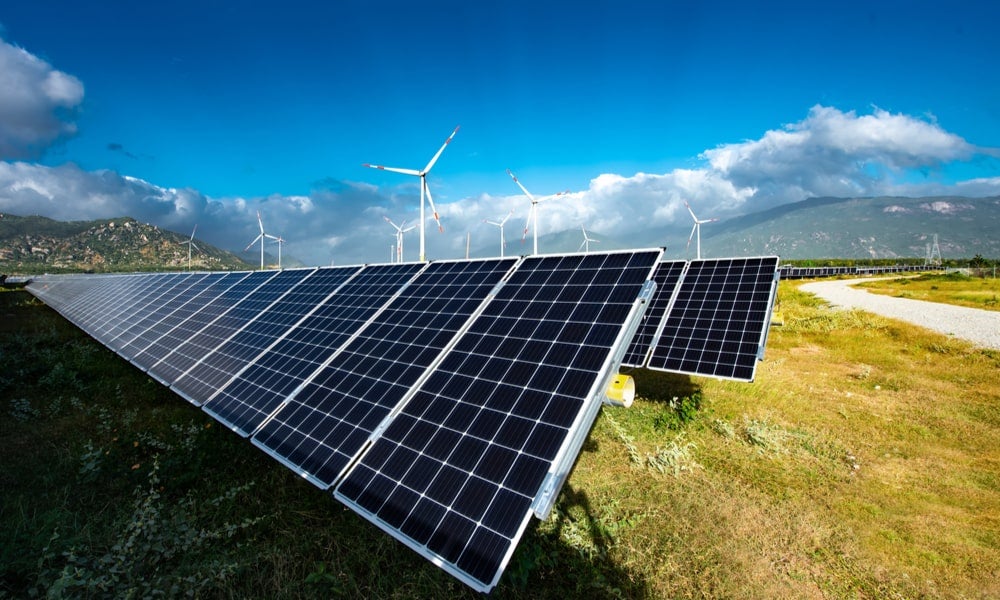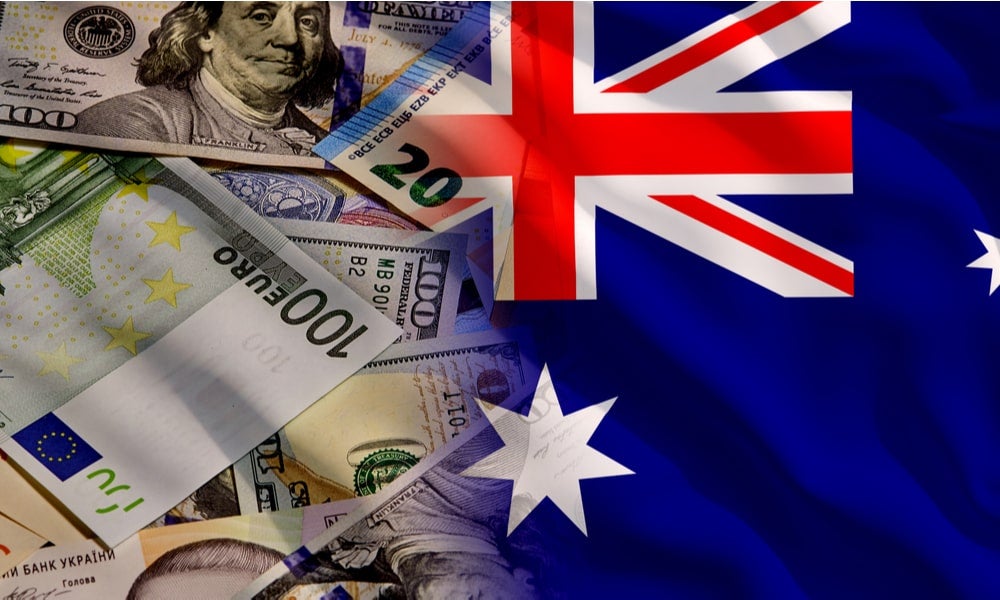Sustainable investment is on the rise globally. Is Australia being left behind?
Investors might consider unsustainable investments in Australia safe considering the government’s inaction towards sustainability, but moves from global bodies are still likely to impact these investments financially
In a public message celebrating the fourth of July, the chargé d’affaires Mike Goldman at the United States embassy was the latest to urge Australia to adopt “more ambitious climate goals”. This is hot on the heels of Australia being criticised for its lack of commitment at the recent G7 summit where attending leaders agreed to end government support for coal-fired power stations, and within the leadup to the COP26 summit that many see as a final stand for countries to combat climate change.
Australia might be dragging its feet, but the rest of the world is moving forward towards ambitious climate change, environmental and social sustainability goals. And all these developments need significant amounts of investment. As a result, countries and regions alike have started to rapidly develop sustainable finance frameworks to channel private capital towards investment routes that support the achievement of these goals.
And as Australia continues to remain out of step with these global financial trends, it risks not only dangers associated with climate change, environmental and social wellbeing. It is taking a risk in terms of investment returns as well, warn UNSW Sydney experts.
Global ripples: Australian investments are impacted by overseas decisions
Speaking at a recent seminar on Developments in Sustainable Finance, hosted by the UNSW Business School, researchers from UNSW Business School and UNSW Arts, Design & Architecture cautioned those that invest in unsustainable assets that while they might take comfort in the Australian government’s relative silence on the issue of sustainable investment, this by no means guarantees positive gains for the investor.

“Decisions overseas are already impacting the value of assets in Australia,” said Kingsley Fong, Associate Professor in the School of Banking and Finance at UNSW Business School, referring to recent court decisions that were found against companies such as Exxon Mobil and Chevron who have major interests in Australian energy projects. “It’s important [and they’re] already hitting your financial assets.”
And Australia is particularly at risk of this. Major sectors such as mining, energy, agriculture, and tourism are heavily exposed to and influenced by international standards, policy and legislative changes targeted at addressing climate change, said A/Prof. Fong.
But he also points out that embracing sustainability reporting and standards will take more than simply mimicking what was being done overseas. “Our industry structures are different, our economies are different, and [our] social issues like those in the Indigenous communities [are different],” he said. “All this needs to be translated into our contexts as standards, regulations or legislation sooner or later.”
How is sustainable reporting and investment being approached overseas?
According to Linda Romanovska, sustainability, climate resilience and sustainable finance expert advisor appointed to the European Union’s Platform on Sustainable Finance, the world is currently undergoing a fast-paced wave of developments when it comes to systems around finance, and its relationship to the environment, climate change, and social goals.

Ms Romanovska, who is also a Scientia Ph.D. scholar in the School of Built Environment at UNSW Arts, Design & Architecture, said these changes are increasingly moving away from older, voluntary frameworks to ones that are legislated and mandated. “We are seeing a strong move from voluntary sustainability assessments and transparent disclosures in finance and for corporates, towards incorporating them in fiduciary and prudential duties and legal liability.”
In addition to this, measures, which are part of sustainable finance frameworks are providing guidance to which investments are sustainable; defining what sustainability is, creating taxonomies – classification systems on what kind of economic activities can legitimately attract sustainable finance, and integrating climate change risk in prudential duties.
“The European Union (EU) is currently a global leader in this,” said Ms Romanovska. “[It’s] further ahead with a comprehensive sustainable finance framework, and also the EU taxonomy of sustainable economic activities.”
These types of actions have benefits in an investment’s long–term sustainability, meaning they can be maintained in long term with relative resilience to man-made or natural calamities, or shortages to natural resources as well as the transition risks. It’s something that makes them an enviable asset to acquire.
Read more: Why coal exports to China are finished (and what to do about it)
“There is massive and growing demand and appetite for sustainable investment products in the market,” Ms Romanovska said. “Green bond issuances [are] typically up to 10 times oversubscribed – demand exceeds the offer by a large margin. This is not because there is a sudden rise in numbers of very ethical investors. It is because green is profitable … sustainable portfolios routinely achieve or overachieve their targets both in environmental impact and financial returns.”
17 countries including China, the UK, Canada, India, New Zealand and Japan are currently working within the EU’s International Platform on Sustainable Finance; among other tasks collaborating to create a Common Ground Taxonomy, as well as working to their own individual frameworks. The US has also announced plans to follow suit, working closely with the EU.
Accounting is another area that is pushing for more consistency across items to ensure sustainability standards and Environmental, Social, and Governance (ESG) criteria are met, said Dr Maria Balatbat, a Senior Lecturer in the School of Accounting, Auditing and Taxation at UNSW Business School.
“[Currently] there is no uniformity in using the terminology,” Dr Balatbat explained. “Then sometimes, greenwashing can be a result, because there’s no common framework. The International Accounting Standards Board, together with the International Federation of Accountants have started to demand that there be a unified approach in terms of addressing what should be reported, what should be communicated to the investors,” Balatbat said.
“That way the investors are well aware of the risks involved and can put the resources on organisations that deserve investments.”

Where does all this leave Australia?
While the global situation leaves unsustainable investments in Australia to an uncertain future, this by no means signals a lack of desire for positive change when it comes to sustainability. According to the Lowy Institute Climate Poll 2021 report, 60 per cent of Australians – a four-point increase from the year before – consider climate change as a “serious and pressing problem” that needs steps to be taken now “even if this involves significant costs”.
It’s a sentiment that is echoed in the private sphere. With a clear lack of government action, the financial private sector has mobilised to create the Australian Sustainable Finance Initiative (ASFI). As outlined by A/Prof. Fong and Ms Romanovska in the publication Fifth Estate (2021), the group of over 140 financial sector players has since released a roadmap of 37 recommendations, to create a more resilient and sustainable financial system that aligns with the United Nations Sustainable Development Goals that focus on environmental and social objectives.
But according to Ms Romanovska and A/Prof. Fong, there are several limitations and challenges to this sort of private sector initiative. Firstly, voluntary frameworks have historically “not worked well enough”, Ms Romanovska said. “The way forward – and that’s how Europe has chosen to move forward with this – is to work on legislative frameworks.”
Read more: The case for sustainable communities: three big ideas to future-proof Australia
There is also an aversion in Australia to a perceived imposition of a sustainable taxonomy framework from above. “[Even though] in several countries, the sustainable finance frameworks are developed bottom-up with the participants of their private sector,” said Ms Romanovska, an approach Australia could follow.
Lastly, Ms Romanovska and A/Prof. Fong believe that the timeline of ASFI lags that of other leading economies. Look at the example of harmonising definitions of green bonds, for example, said A/Prof. Fong. “It’s very hard to trade, write contracts and adjust company policies, when [companies] don’t know how they will be judged ... so it’s important to standardise those things. If you don’t have a national body, there is nobody to represent Australia.”
“Australian companies account for two to three per cent of the global stock market value, portfolio diversification means we will continue to have a large fraction of our assets owned by foreign investors. It makes sense for Australia to come to the table to refine and define the terms of sustainable finance in international platforms. “
“It is a great start,” said Ms Romanovska of the ASFI. “But it cannot achieve the required impact unless we have that political buy-in – unless we have the leadership coming from the different levels of government.”

What does the future hold?
While there are challenges around sustainable investment and building sustainable taxonomies in Australia and overseas, there are plenty of opportunities. As Ms Romanovska said, the difficulties facing our global society are enormous, but we are being presented with a unique opportunity.
“On one hand, we need to deal with increasingly frequent and severe climate change impacts; floods, droughts, bushfires, everything that we’re also experiencing here in Australia that is already causing billions of losses in our economies,” said Ms Romanovska. “And at the same time, we also need to deal with recovery from COVID–19.”
“[Yet] it is one of the greatest opportunities of modern times to restructure economic systems so that they are long term sustainable.”
Kingsley Fong is an AGSM Scholar and Associate Professor in the School of Banking and Finance at UNSW. He also serves as the Program Director of the Master of Financial Planning and his research interests include market microstructure, household finance, investment and sustainable finance. For more information please contact Associate Professor Kingsley Fong directly.
UNSW Sydney and UNSW Business School are committed to delivering against the UN Principles for Responsible Management Education (PRME) and UN SDGs. More information is available in the UNSW Business School 2021 PRME SIP Report.
